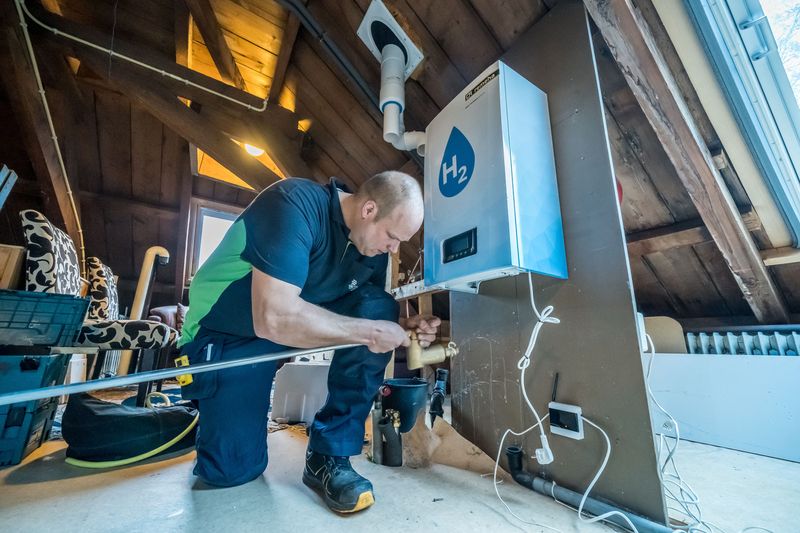By Toby Sterling
AMSTERDAM (Reuters) - Hydrogen, hailed by some as the clean fuel of the future, is being put the test on a domestic scale in a trial by a dozen homes in the eastern Dutch town of Lochem.
Using a local grid that has been converted to pipe hydrogen instead of natural gas, the three-year experiment is being run by local operator Alliander using BDR Thermea hydrogen boilers.
Homeowners who volunteered to take part are unlikely to notice much difference, as hydrogen boilers look and work very much like natural gas ones, despite the differing chemical properties of the two gasses.
They will pay the same price as they would for natural gas under the scheme.
Hydrogen, however, does not emit greenhouse gases at the point when it is burned, making it a key part of the Dutch strategy for reaching zero carbon emissions by 2050.
The hydrogen used in the Dutch experiment is "grey", which means it is a by-product of burning fossil fuels which fed into the Lochem grid at an industrial zone nearby.
Grey hydrogen is currently too expensive for normal home heating, while 'green' hydrogen produced using renewable electricity is still rare. But some predict the price of green hydrogen will fall as wind and solar power become more common.
BDR Thermea CEO Bertrand Schmitt said hydrogen is just one future technology, which could be especially useful for older standalone houses like those in the Lochem trial.
Districting heating and electricity-powered heat pumps, which BDR also makes, will also play a key role.
Production of "green" hydrogen from renewable sources is expected to expand in the coming years.

Shell (LON:RDSa) has announced a electrolyser plant in the Port of Rotterdam expected to produce 60,000 kilograms of hydrogen per day by 2025 with electricity from offshore wind.
The Dutch government has tasked grid operator Gasunie with developing a national hydrogen grid in steps by 2030.
